Mozambique
Mozambicans took to the polls on Tuesday taking part in presidential, provincial and legislative elections, pitting the two main parties, Frelimo and Renamo against each other.
In this article, we highlight the election issues, presidential candidates, electoral guidelines and the process from voting to announcement of official results.
- Hard figures from official final results
- Mozambicans urged to reject results
- Renamo wants elections results cancelled
- Opposition rejects results
- Frelimo, Nyusi gain early lead
- US expresses concern over credibility of polls
- Observer missions share initial observations
- Electoral body decides against provisional results
Number crunch from final results
Final results of Mozambique’s October 15 general elections were released by the elections body over the weekend with President Filipe Nyusi and the ruling Frelimo bagging huge wins.
The opposition parties have since voiced their rejection of the results but have yet to undertake any legal measures of challenge. We present some figures from the official outcome.
73% = Percentage President Nyusi got re-elected with
74% = Ruling Frelimo’s seats in parliament party
22% = Percentage won by main opposition Renamo
51% = Overall percentage of turnout
In the 250-seat National Assembly, Frelimo won 184 seats, Renamo 60 seats and the MDM party got six seats.
Renamo failed to win a single province in a vote where provincial governors were directly elected for the first time.
Frelimo will continue to govern all 10 provinces which elected provincial assemblies. One province, Maputo city, did not elect a provincial assembly to avoid duplicating the municipal government, which is also run by Frelimo.
Nyusi takes trip to Russia
Incumbent president, Filipe Nyusi, who is set for a landslide victory according to preliminary results and projections by observers, is currently in Russia seemingly already setting his second term in motion.
The Electoral Institute for Sustainable Democracy in Africa (EISA) on Tuesday said Nyusi will win more than 70 percent of the vote against 21% for opposition candidate Ossufo Momade, according to data from 2,500 polling stations.
Official results from the electoral commission shows that Nyusi has taken 74.6% of the presidential vote versus 20.2% for Momade, after two-thirds of polling stations have been processed, representing just over 36% of the more than 13 million potential ballots from registered voters.
During elections, most presidents generally opt to remain in their countries and skip global meets until the process has been relatively concluded.
Nyusi, on the hand met the head of Russia’s state bank VTB, Andrei Kostin discussing plans to restructure Maputo’s debt, and seek a deal by the year-end.
VTB said in a statement on Wednesday that Kostin told Nyusi that the Russian bank would like to agree on the debt restructure plan by the end of this year.
“The agreement was reached to continue this discussion to find a final solution,” VTB said.
Mozambique needs to restructure a $535 million state-backed loan to Mozambique Asset Management (MAM) arranged by VTB.
The bank also said it was interested in attracting Russian and foreign investors to Mozambique, including to the agriculture sector, gas industry and energy.
Mozambique has been battling to recover from a debt crisis after admitting in 2016 to $1.4 billion of previously undisclosed lending, prompting the International Monetary Fund (IMF) to cut off support and triggering a currency collapse and debt default.
ALSO READ: African leaders in Sochi as first Russia – Africa forum startsObserver group predicts Nyusi win
An elections observer group in Mozambique says president Filipe Nyusi is heading for a landslide victory in elections, according to its preliminary estimates.
Based on data from almost 2,500 polling stations out of a total of more than 20,000, the the Electoral Institute for Sustainable Democracy in Africa (EISA) estimates Nyusi will win 70.9% of the vote.
EISA programme officer Domingos Rosario said that during its count, the institute found that in many polling stations across seven different provinces, the number of votes greatly exceeded the number of voters registered at that station.
EISA estimates Momade will end up with around 21.4% of the vote while Daviz Simango, of smaller rival the Mozambique Democratic Movement, will secure 6.9%, Rosario told a news conference.
Official results from the electoral commission indicate that Nyusi has taken 74.6% of the presidential vote versus 20.2% for his main rival, Renamo candidate Momade, with two-thirds of polling stations processed.
Mozambicans urged to reject results
Mozambique’s main opposition party, Renamo on Monday called on citizens to reject the results that have so far been released by the electoral commission.
With around 37% of the votes counted from roughly 13 million registered voters, Nyusi of the ruling Frelimo party had secured 74.6%, while opposition Renamo candidate Osuffo Momade had 20.2%.
After a meeting of its top officials on Monday in Maputo, Renamo said it had decided to challenge the results over allegations of registration irregularities, phantom voters and the intimidation of activists and candidates by security forces.
“The above-mentioned facts … reported here constitute predicted and punishable electoral offences under the law, as well as a denial of the most elementary principles of democracy and human rights,” said Renamo president Momade.
“We urge all Mozambicans not to accept this mega electoral fraud.”
Frelimo spokesman Caifadine Manasse said Renamo regularly complains about elections, despite being part of all the electoral bodies and having delegates at voting stations.
“Renamo is not serious about democracy,” he said.
Victory for Renamo in a number of provinces is seen as central to the survival of a peace pact signed in August. But early data suggests Renamo has already lost some of them.
According to electoral commission data, Frelimo had clinched nearly 80% of the vote compared to Renamo’s 17% in Tete province. In nearby Sofala, site of Renamo’s headquarters, the opposition had only 20% versus Frelimo’s nearly 66% of votes.
Renamo hoped to win control of such provinces to satisfy a long-thwarted demand for influence: for the first time after the election, provincial governors will be appointed by the majority party in each province rather than by the government.
Renamo unhappy with results
The main opposition party, Renamo on Saturday accused the ruling Frelimo party of violating a recently signed peace deal, by using ‘violence and intimidation’ to pursue political objectives.
With around 39% of the votes counted from roughly 13 million registered voters, incumbent president Filipe Nyusi has taken a lead securing 68.85%, while his main competitor Osuffo Momade of the Renamo party has racked up 26.20% of the vote so far.
The secretary general of Renamo, Andre Magibire, said the party was unhappy with the way Tuesday’s presidential, legislative and provincial elections were carried out and that there had been “massive fraud”.
Frelimo’s spokesman Caifadine Manasse said elections were fair, free and transparent and would not affect the peace agreement.
This election was seen as make or break for the peace pact, which put a formal end to decades of hostility between Renamo and Frelimo.
The two fought on opposite sides of a civil war that ended in a truce in 1992, but have clashed sporadically in the years since.
Magibire said Renamo would hold a meeting on Monday to decide its next steps.
Opposition MDM party rejects results
The opposition Democratic Movement of Mozambique (MDM) denounced a “shameful electoral process”.
In a statement issued on Friday, the MDM expressed its “indignation” and “rejection” of the electoral process.
“We claim that there has been fraud,” the party added, “these elections were neither fair, free nor transparent.’‘
The main opposition party, Renamo has refrained from making any official comments since Tuesday’s election.
Preliminary results give Nyusi lead
Mozambique’s electoral commision released first results of Tuesday’s presidential and legislative elections, which indicated that the incumbent president and the ruling party had taken an early lead.
After counting 830,000 ballots cast, representing just over 6% of the 13.1 million registered voters, the current head of state, Filipe Nyusi, who is running for a second term, has polled nearly 75% of the votes, according to the results published by the NEC on its website on Friday.
The main opposition candidate, Ossufo Momade, leader of the main opposition party Renamo, the former rebellion of the civil war (1975-1992), received 20% of the votes, according to the same results.
At the last presidential election, Mr. Nyusi won with 58% of the votes in front of the historical leader of the Renamo Afonso Dhlakama (37%).
In the legislative elections, Frelimo, which has led Mozambique since its independence from Portugal in 1975, is well ahead with 70% of the votes after counting 750,000 ballots, ahead of Renamo with 22% of the votes, according to initial results.
The NEC is scheduled to announce the results of the provincial elections on Monday, which also took place on Tuesday.
United States expresses concerns
In a statement on Friday, the U.S. Embassy in Mozambique issued “serious concerns about (…) irregularities that could have consequences on the perception of the integrity of the electoral process”.
The statement cited “discrepancies” between the voters’ lists and the population census in several regions, including in the provinces of Gaza (south) and Zambezia (central).
The statement added that in many polling stations in Gaza, the turnout at the end of the day was “almost 100%” while it remained “low until mid-afternoon”.
EU criticises ruling party
The European Union observer mission deployed in Mozambique on Thursday raised an alarm, citing unfair conditions and unjustified use of state resources by the ruling party, as well as widespread violence.
“An unlevel playing field was evident throughout the campaign,” the EU mission said in a statement.
“The ruling party dominated the campaign in all provinces and benefited from … incumbency, including unjustified use of state resources, and more police escorts and media coverage than opponents.”
Frelimo spokesman Caifadine Manasse said the EU claims were “unfounded”.
“Frelimo went to these elections as a governing party, but competed on equal terms with the other parties,” Manasse said.
“The European Union is acting badly in making such pronouncements …We work on the ground using our means, the means of the Frelimo party and the candidate.”
Very few results have yet trickled out, although an official at the electoral commission said they may start coming out on Friday, the law allows 15 days in total after the vote.
“Inter-party violence was prevalent as well as mistrust between the main political parties and a lack of confidence that the electoral administration … (was) independent,” the EU said, adding that there was also little public trust in the independence of the police.
African observer missions urge caution
African observer missions were more sanguine, with both the African Union team lead by former Nigerian President Goodluck Jonathan and the Southern Africa bloc SADC praising the poll for being peaceful and well organised.
“We commend (the electoral commission) and the state for conducting successful, peaceful and orderly elections,” SADC mission chief Oppah Muchinguri-Kashiri told journalists.
“Parties and people must be patient and remain committed to Peace as the results are being compiled for validation,” said Muchinguri-Kashiri, who is Zimbabwe’s defence minister.
The former rebel movement Renamo seeks to control its traditional heartlands in central and northern provinces but it faces the waning popularity of its candidate, Ossufo Momade, and a challenge from younger opposition party, the MDM.
- Vote counting underway
- Polls close
- President, opposition leaders vote
- Polls open
- Will peace deal hold?
- Presidential candidates
- Election issues
- Electoral guidelines
Tensions rise over results proclamation
Voters in Mozambique are wary of the possibility of post-election violence, following the decision by the electoral commission to not publish provisional results.
The electoral body indicated that it will only release the final results within the mandated 15-day period following Tuesday’s vote.
‘‘The official electoral results could take a long time to come out, and so that could lead to irregularities and violence,’‘ Egidio Guambe, director of ‘Plataforma Transparencia eleitoral said.
The counting of results itself has not been without incident. Watchdog Sala da Paz said police fired tear gas and warning shots in the central province of Nampula — a Renamo stronghold, after opposition supporters refused to leave polling premises to “protect their vote”.
‘‘We cannot say that the process was 100 percent free and fair but we definitely think it would be an acceptable process where we definitely believe that the political parties also can accept the outcome of these elections,’‘ said Hermenegildo Mulhovo, member of Sala da Paz.
According to unconfirmed reports, police had killed a voter during the incident in circumstances that were still unclear and 73 people had been arrested for “disturbances in polling stations”.
Vote counting, ballot-stuffing allegations
Allegations of ballot-stuffing have persisted in Mozambique despite Tuesday’s dismissal of the same by the country’s electoral commission as ‘completely untrue’.
The Electoral Administration Technical Secretariat (STAE) refuted reports by opposition parties that an unauthorised private company brought ballot boxes and voting material into Mozambique, with the intention of undermining the election. STAE says all voting material was produced by the companies Academica and Uniprint, which won the tender.
It’s director Felisberto Naife added that a through investigation of these allegations would be conducted, including a process of evaluating authenticity of extra ballot papers.
On social media, several observers and voters shared pictures and videos showing the ongoing process of counting and tallying votes.
Ballot counting is ongoing in the Mozambican general elections? Balsu skaitīšana Mozambikas vispārējās vēlēšanās #MozambiqueElections #eleições2019 #ilovemyjob pic.twitter.com/XyDf4rSdZx
— Linda Mazure ?️ (Vinotava) (@Vinotava) October 15, 2019
#MozambiqueElections
Sample from a polling station in Beira
Number of voters 158
Number of ballots in the box 252 pic.twitter.com/sfTt4UFwO2— Zenaida Machado (@zenaidamz) October 15, 2019
Polls close
At 6pm local time (1600 GMT), polls closed as stipulated by the law. Mozambicans will hope that authorities can announce the outcome as soon as possible. The law allows for 15 days for results to be announced.
Fragile peace
President Filipe Nyusi praised Mozambicans for deciding their destiny in elections and called for peace and calm to continue.
“Mozambique has chosen peace,” he said after casting his ballot at a school in the capital Maputo.
Outside of Mozambique’s remote north, the main security risk would come from a disgruntled opposition.
“If [the vote] is manipulated, we will never accept it,” Renamo presidential candidate and party leader Ossufo Momade said after casting his ballot in Nampula, in the north.
“We have to do whatever we can do, if the people want us to,” he said, without elaborating on the warning.
Momade is seen by analysts as less likely to turn to violence than his predecessor, but also as less able to maintain control of the party and supporters.
Both opposition parties, Renamo and younger challenger the MDM, have already made allegations of vote rigging.
The run-up to the vote was marked by sporadic violence, including the killing of an election observer and attacks from a breakaway group of Renamo fighters that killed one person.
Polls open
On Tuesday, 20,000 polling stations welcomed Mozambicans to cast their votes. Throughout the day, nearly 13 million registered voters were expected to select a President of the republic, 250 deputies, ten governors and members of provincial assemblies.
We are looking forward to a successful outcome as the good people of Mozambique visit the polling stations across the country today to perform this important civic duty.
GEJ pic.twitter.com/AqIyu83XuB— Goodluck E. Jonathan (@GEJonathan) October 15, 2019
Will election make or break peace deal?
President Filipe Nyusi is widely expected to win a second term, while the main opposition party, Renamo hopes to win more political power,following a peace deal signed between the two civil war rivals in August.
Under the deal, provincial governors will now be picked by the main party in each province, rather than the government in Maputo, and Renamo is banking on traditional provincial strongholds such as Sofala to gain influence.
“The biggest threat to the peace process is if Renamo does not deliver a good number of provinces,” said Alex Vines, head of the Africa programme at Chatham House.
Frelimo has dominated the politics since the southern African country’s independence from Portugal in 1975.
Presidential Candidates
President Felipe Nyusi is the incumbent, having succeeded his mentor Armando Guebuza as head of Mozambique in 2014. The country’s first president from the Southern region, Nyusi is struggling to contain an Islamist insurgency in his home region.
Ossufo Momade, took over the reigns of the National Resistance of Mozambique (Renamo) last year, when its historic leader, Afonso Dhlakama died suddenly. He signed the peace deal with government to end the decades-old conflict, but is yet to win the full support of the movement’s armed wing.
David Simango, who seceded from Renamo in 2009, is contesting the presidency for the third time. Since 2003, Simango has been mayor of the Mozambican city of Beira, ravaged by Cyclone Idai six months ago.
Mario Albinois the outsider of the presidential election, leading the United Movement for Integral Salvation (AMUSI), which was created by former members of Simango’s party.
READ MORE: Meet Mozambique’s four Presidential candidates for the Tuesday electionElection issues
President Nyusi has pledged to develop the country’s gas reserves, and consequently tackle the extreme poverty that is fuelling an Islamist insurgency in regions like Cabo Delgado. Mozambique is set to become a top global gas exporter, and expects investments worth $50, more than four times its current GDP.
Nyusi’s government has taken a hit in reputation by the relentless attacks on villages in the gas-rich region, a Frelimo stronghold. Attacks have increased in the run-up to the vote, making campaigning impossible in some districts, said Human Rights Watch researcher Zenaida Machado.
While a peace deal was signed in August to end decades of hostilities, a breakaway faction of Renamo fighters that disputes some aspects of the accord has been staging attacks in the group’s traditional central strongholds, demanding that party leader Ossufo Momade resign and the election be postponed.
Senior Frelimo politicians and associates, including a former finance minister and the ex-president’s son have been charged in a $2 billion debt scandal that has tarnished the party’s image. The discovery of previously undisclosed loans, all guaranteed by the government, prompted the International Monetary Fund and foreign donors to cut off support, triggering a currency collapse and a sovereign debt default.
READ MORE: Mozambique charges 20 in connection with $2 billion hidden debt scandalSix months after two cyclones ravaged the country, killing hundreds and wreaking destruction across central and northern regions, the effects are still being felt, in the lead up to the election. Researchers say affected Mozambicans lost their voter cards or identity documents needed to cast ballots, during the storms. Opposition parties have also accused the government of not doing enough to assist affected people
High-stakes election
Renamo fought Frelimo for 16 years from 1977 to 1992 in a Cold War conflict that killed about one million people. It ended in a truce but sporadic violence has flared in the years since,including after Renamo challenged election results in 2014.
The problem for Renamo in places such as Beira, the capital of Sofala province, is that Frelimo, as well as the smaller Mozambique Democratic Movement (MDM), are muscling in on its traditional turf.
Nyusi’s credibility has been knocked by the insurgency and a graft scandal that sank the economy, but Frelimo holds numerous districts in Sofala following local elections last year, and dozens of people told Reuters the ruling party had their vote.
Frelimo spokesman Caifadine Manasse said it had consolidated the rule of law and tackled graft.
Chatham House’s Vines said if Renamo wins three or four of Mozambique’s 10 provinces in next week’s vote, that should be sufficient to placate its supporters.
But any fewer and a recent bout of party infighting over the peace deal could worsen. Renamo’s leadership could lose control of sections of the party, threatening commitment to the agreement or even a return to targeted violence, he said.
Renamo spokeswoman Maria Ivone Soares said the party was convinced it would win in Sofala and other provinces.
“The results are unlikely to be disappointing because of the … corruption, unemployment, inequality and misery that have been promoted in this country since national independence.”
Electoral system
The president is elected using the two-round system, and must win an absolute majority to avoid a run-off or second round.
The 250 members of the Assembly are elected by proportional representation, where the party with the most votes appoints the leaders in each region.
Mozambicans in the diaspora (Africa and Europe) are also represented.
Polls open at 7am local time (0500 GMT) and close at 6 p.m. (1600 GMT). The law allows 15 days for results to be announced.



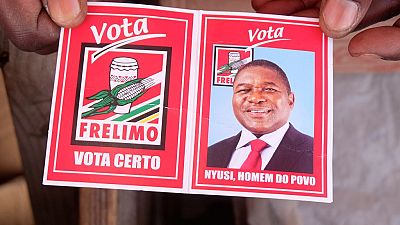

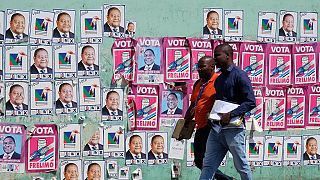
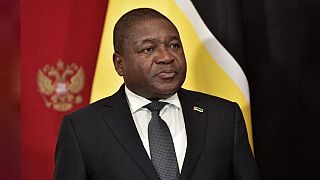
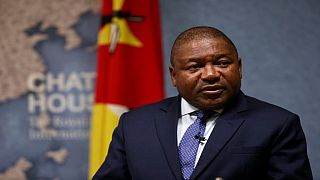
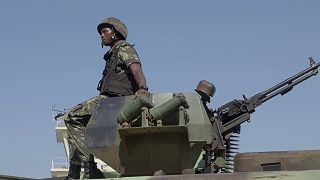
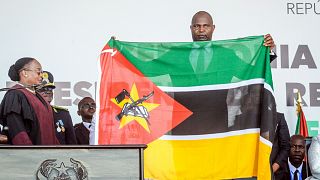
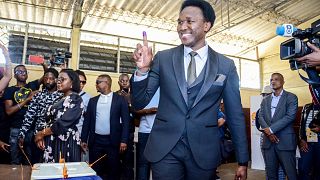



01:21
Cameroon 2025: Maurice Kamto seeks to vie on a different political outlook
01:04
Turkish democracy under pressure: Erdogan's top rival sentenced to two years in prison.
01:52
Togo’s security forces cast early votes ahead of high-stakes municipal elections
02:23
Cameroon: Mixed reactions in Yaoundé after Biya announces bid for another term
Go to video
Togo protest crackdown raises fears of worsening political crisis
Go to video
Tunisia sentences prominent opposition leader to 14 years in prison